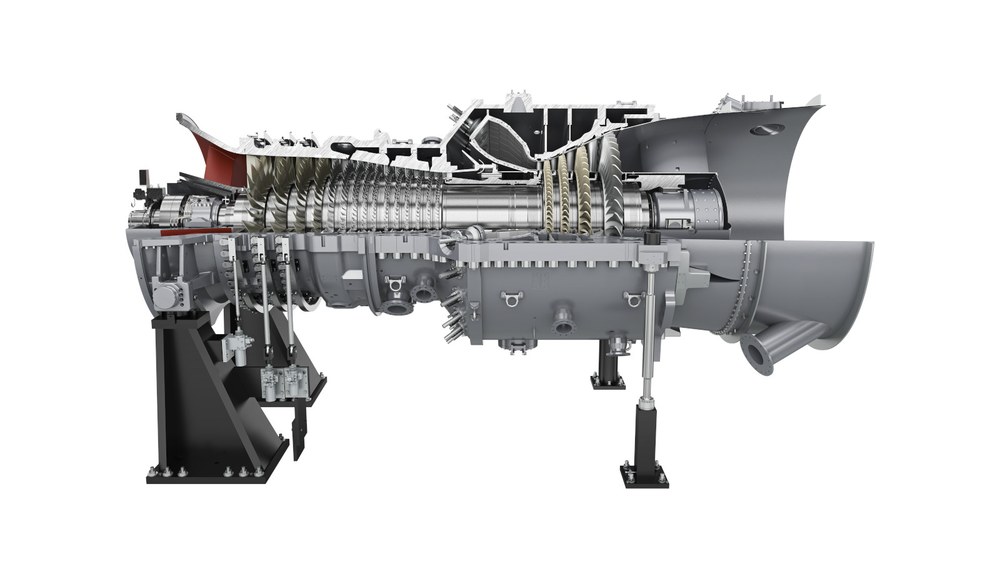Joint project KüpLe
The high process temperatures and pressures necessary for high gas turbine efficiency require components made of high-temperature resistant materials for technical realisation in the area exposed to hot gas. In addition to the further development of materials with high temperature stability, the development of suitable cooling methods plays a central role. The air required to cool up to 20% of the air mass flow converted in the compressor removes work from the main gas path and thus from the overall system. The aim in the development of cooling technologies was and is to minimise the cooling air used in order to achieve both the high process pressures and temperatures required for thermal efficiency and to minimise parasitic losses.
Problem definition - Shortened service life and reduced economic efficiency due to higher cyclical load during flexible operation: Various factors play an important role in optimising the economic efficiency of power generation by a gas turbine. In addition to the investment costs, the operating costs are of decisive importance. So far, fuel costs have dominated this area; process efficiency is therefore also important from an economic point of view in addition to the ecological aspect of CO2 reduction. The increasing demand for more flexible operation of systems with short operating times, many cycles and fast start-up and shut-down processes significantly reduces the service life of the components due to the cyclical load. To achieve this, both an improved partial load efficiency of the system and an increased service life of the components must be realised. At the same time, the achievable number of cycles/lifetime must be significantly increased.
Increasing service life and maximising efficiency through intelligent cooling system design
In addition to the maximum temperatures and mechanical loads, the service life of the components exposed to hot gas is strongly influenced by the spatial and temporal gradients; optimising the cooling methods and their design is therefore an important prerequisite for the environmentally friendly and at the same time economical operation of gas turbines for power generation in highly cyclical operation, also with a view to maximising the service life. The development of numerical methods and their validation as a basis for future tools for detailed design in the transient range is therefore of great importance.
Work packages
WP 1: Simulation and analysis of the flow in rotor stator cavities in turbines
AP1 ist dem Bereich Kavitäten und Dichtungen zugeordnet, die zentraler Bestandteil des Luftsystems jeder Gasturbine sind. Dabei liegt der Fokus auf dem vertieften Verständnis der hochkomplexen dreidimensionalen Strömung in den Kavitäten im inneren Scheibenbereich auch zur Optimierung der Abdichtung gegen Heißgaseintritt.
WP 2: Aero/thermal investigation of blade tip configurations for compact turbines with high power density
WP 3: Cooling air dispersion with film cooling
WP2 and WP3 concentrate on the end wall areas of the blade. This results in strong interaction between the secondary flows of the main gas path and the cooling and sealing air mass flows. This interaction is to be optimised for the overall system.
WP 4: Flow and heat transfer in internal flows with large vortex scales
WP 5: Efficient calculation of transient conjugate heat transfer processes
In WP4 and WP5, the focus of the work is on the development of combined numerical methods with improved predictive capability, including in the transient range. New adaptive sealing systems, which can adjust the gap height by varying the geometry, allow significantly lower sealing air mass flows. The physical understanding in the partial load range as well as in transient manoeuvres is not yet sufficient for an optimised design.
WP 6: Adaptive seals for improved part-load and transient operating behaviour of gas turbines
This creates an experimental basis for verified correlations for the design of adaptive seals.
Project structur plan

Facts and figures
Volumen
6.420 k€
Project duration
01.01.2019 - 31.12.2022

